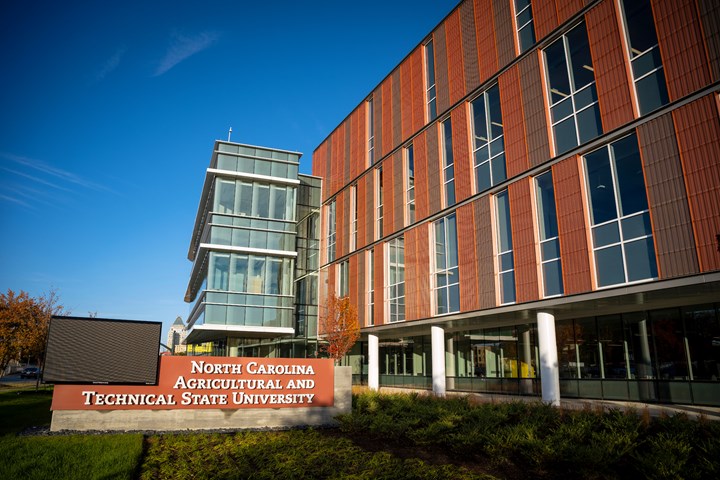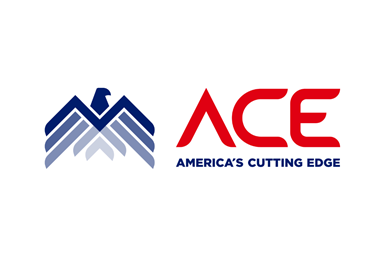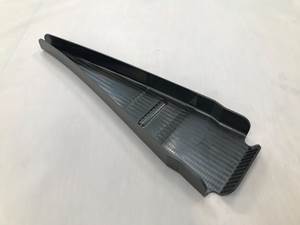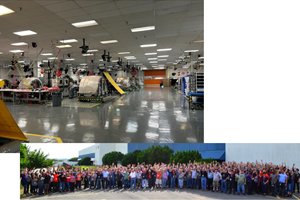IACMI, N.C. A&T State University to lead DOD regional machine tool workforce training center
America’s Cutting Edge (ACE) hub aims to revitalize and close the skills gap for the U.S. machine tool industry, and from there, advanced manufacturing capabilities.

The N.C. A&T State University complex. Photo Credit: N.C. A&T
The Institute for Advanced Composites Manufacturing Innovation (IACMI, Knoxville, Tenn., U.S.) and North Carolina Agricultural and Technical State University (N.C. A&T, Greensboro) have announced a new partnership aimed at revitalizing U.S. manufacturing with a focus on the machine tool industry. Machine tools are a foundational element of U.S. advanced manufacturing capabilities, which are essential to national security and continued economic vitality, and with IACMI’s involvement, there will almost certainly be some kind of composite component as well.
The new partnership agreement, signed April 1, will advance America’s Cutting Edge (ACE), a joint Department of Defense (DOD) and Department of Energy (DOE) initiative launched in 2020 to reestablish American leadership in the machine tool industry through transformative thinking, technology innovation and workforce development. IACMI, through an agreement with the DOD’s Industrial Base Analysis and Sustainment (IBAS) program, is leading an ACE industrial skills training program to scale workforce pipelines with a focus on machine tooling and advanced machining.
“We have a critical workforce skills gap in this country when it comes to machine tool resources,” IACMI workforce director Joannie Harmon says. “The training component of ACE is intended to help our nation recover, advance and sustain technical and manufacturing positions — all to enable a strong, resilient and responsive U.S. industrial base.”
According to Gardner Intelligence’s 2020 World Machine Tool Report, the U.S.’ capacity to design, make and use advanced machine tools has been in steady decline since the 1980s due to the migration of advanced machining and manufacturing overseas. As a result, the U.S. has not been the global leader in machine tool production since 1982. An industrial skills gap and aging workforce have led to a lack of the reliable training resources needed to produce the highly skilled and diverse workforce required to manufacture tooling and parts that serve as the essential foundation of the U.S.’ manufacturing capability.
Aiming to rapidly rebuild U.S. industrial capabilities for machine tools, the DOD and DOE’s Oak Ridge National Laboratory (ORNL, Knoxville, Tenn., U.S.), along with IACMI, created ACE, a public-private partnership designed to help close the skills gap and restore U.S. dominance in machine tool technology and innovation. Through ACE, the DOD has established a regional machine tools innovation and workforce hub in Knoxville, Tenn., bringing together the scientific expertise of ORNL’s Manufacturing Demonstration Facility (MDF) and the workforce development capabilities of IACMI.
To date, ACE has created and delivered free courses and bootcamp-style training in the automated control of machine tools to more than 2,100 students from 49 states.
N.C. A&T, reported to be the nation’s largest Historically Black College and University (HBCU) will become the newest home to an ACE regional machine tools workforce training and development center. The center will be housed in the Department of Applied Engineering Technology at N.C. A&T. The university will collaborate with local industry and community college partners in and around the Greensboro, N.C., area to implement a proven machine tool training model developed at the University of Tennessee (UT) and currently in use at UT-Knoxville and at Pellissippi State Community College. Additional ACE machine tool training centers are being planned across the U.S. as ACE partners scale up this workforce initiative.
“Industry demand for machine tool operators, engineers, designers and entrepreneurs far outpaces our manufacturing workforce supply in the U.S.,” Dr. Aixi Zhou, chair and professor in the Department of Applied Engineering Technology at N.C. A&T says. Dr. Zhou will serve as director of the new hub. “At North Carolina A&T, we are leveraging this opportunity with America’s Cutting Edge to better serve our students and community. We stand ready to address the overall manufacturing skills gap in this country and directly bolster our nation’s machine tool workforce to help [the] DOD meet its supply chain needs. This partnership with [the] DOD is a great opportunity for many high school and college students in the region to receive hands-on education and strengthen North America’s national competitiveness in manufacturing.”
The engineering technology programs at N.C. A&T provide an applied approach for engineering education with an emphasis on learning through hands-on activities, including CNC machining in its Applied Engineering Technology curriculum.

“The Piedmont Triad region plays an important role in some niche manufacturing industries, such as aerospace, automotive, bio-manufacturing and furniture,” Dr. Zhou adds. “As the country’s largest historically black university and leading producer of African American engineers, North Carolina A&T is uniquely positioned to increase diversity in manufacturing, particularly machining.”
Using advanced computing, robotics and material design capabilities, ACE is rapidly developing innovative machine tool technologies that are said to dramatically improve precision, efficiency and productivity. The ACE approach puts manufacturers at the center of its strategy. ACE focuses on training new experts, improving cost effectiveness, especially for small and medium manufacturers and machine shops, researching and developing productivity innovations and developing partnerships to commercialize advancements.
ACE uses free online and in-person, hands-on training to connect top national experts with students and incumbent industrial workers from all backgrounds, levels of education and work experience to catalyze awareness and interest in all facets of machining, including software development, metrology, design, operation and entrepreneurship. To date, ACE has created and delivered free courses and bootcamp-style training in the automated control of machine tools to more than 2,100 students from 49 states.
ACE is already transferring resulting technologies to U.S. machine tool manufacturers. One ACE-developed tool has reportedly saved small and medium U.S. machine tool shops more than 55,000 machine hours and $5 million in costs — with potential savings for the broader U.S. industry reaching into the billions across the roughly 30,000 machine shops in the U.S.
Related Content
ASCEND program update: Designing next-gen, high-rate auto and aerospace composites
GKN Aerospace, McLaren Automotive and U.K.-based partners share goals and progress aiming at high-rate, Industry 4.0-enabled, sustainable materials and processes.
Read MoreNew online training course targets prepreg basics
JEC World 2024: Composites Expert highlights how its E-Learning Composites Academy platform supports flexible industry learning with new courses developed with Stelia Aerospace North America.
Read MoreToray, University of Chicago speed up polymer recycling R&D
A jointly developed multi-scale computational predictive technique can accurately predict viscoelasticity from the chemical structures of polymers, ramping up product maturation.
Read MoreReducing accidental separator inclusion in prepreg layup
ST Engineering MRAS discusses the importance of addressing human factors to reduce separator inclusion in bonded structures.
Read MoreRead Next
VIDEO: High-volume processing for fiberglass components
Cannon Ergos, a company specializing in high-ton presses and equipment for composites fabrication and plastics processing, displayed automotive and industrial components at CAMX 2024.
Read MoreAll-recycled, needle-punched nonwoven CFRP slashes carbon footprint of Formula 2 seat
Dallara and Tenowo collaborate to produce a race-ready Formula 2 seat using recycled carbon fiber, reducing CO2 emissions by 97.5% compared to virgin materials.
Read MoreDeveloping bonded composite repair for ships, offshore units
Bureau Veritas and industry partners issue guidelines and pave the way for certification via StrengthBond Offshore project.
Read More
























